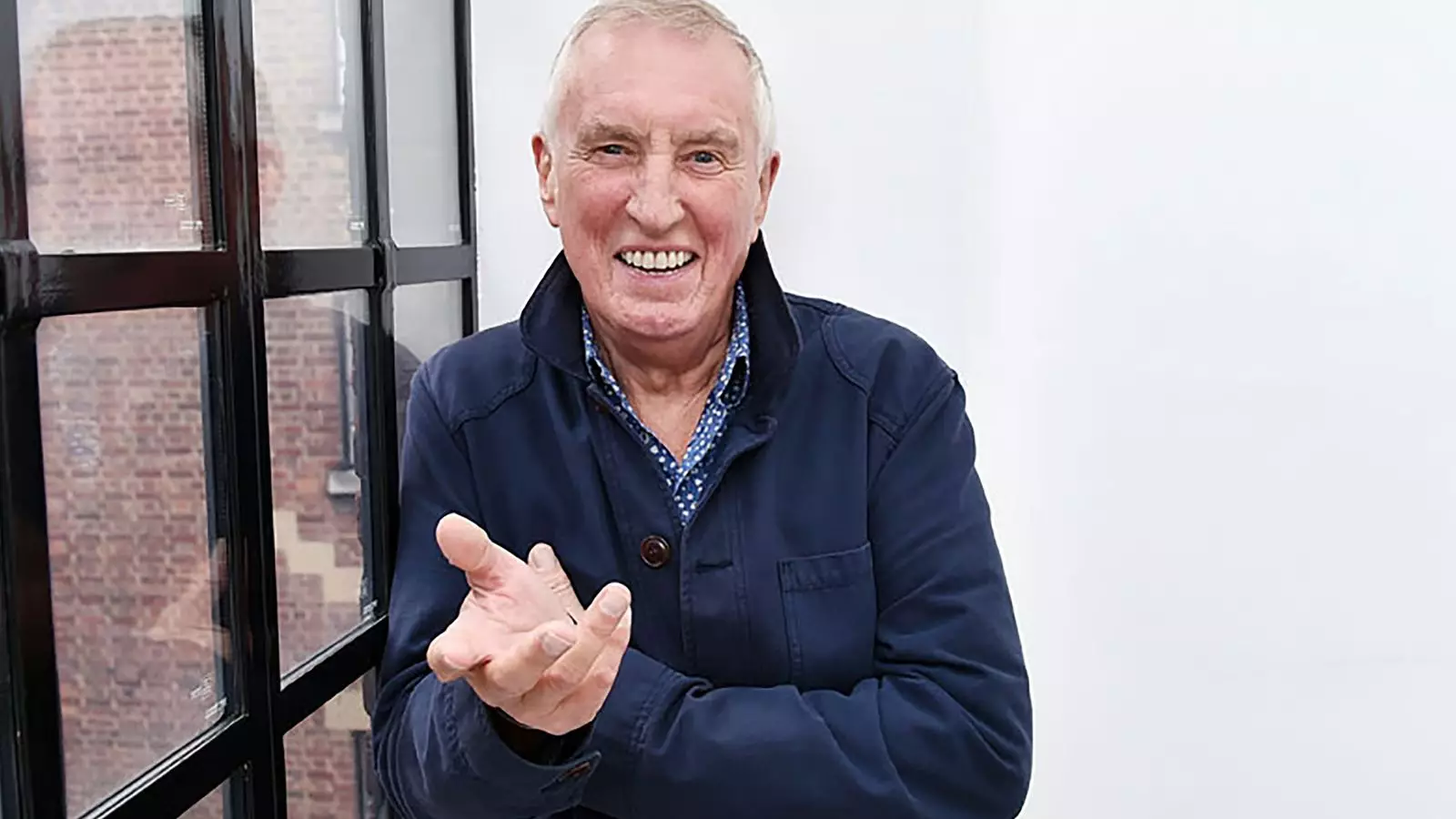Johnnie Walker, a titan in the world of radio broadcasting, has left an indelible mark on the media landscape with his iconic presence at BBC Radio 2. The beloved DJ, who passed away at the age of 79, was not just a presenter but a pioneer who bravely elevated the popularity of rock and pop music for generations. With a broadcasting career that spanned over five decades, Walker’s dedication and enthusiasm for music resonated deeply with his audience. After announcing his retirement in October due to a diagnosis of idiopathic pulmonary fibrosis (IPF) — a progressive lung disease — he delivered heartfelt final shows for both his programs, Sounds Of The 70s and The Rock Show. His passing marks the end of an era, but his influence will continue to echo in the hearts of fans and fellow broadcasters alike.
Johnnie Walker’s journey into the world of music started at an early age. Born in Birmingham, Walker’s early career was far removed from the airwaves; he first trained as a mechanic before shifting gears to sell cars. However, his unyielding passion for music led him to spin records in his free time. The persona of ‘Peter Dee,’ a disco DJ, was the initial step that paved the way for his illustrious radio career. He first arrived on the radio scene in 1966, during a time when pirate radio stations were burgeoning in the UK, which granted him a platform to express his love for music.
In 1969, joining BBC Radio 1 marked Walker’s transformation into a household name. His esteemed ability to champion artists such as Fleetwood Mac and Lou Reed created an authentic bond between him and his audience. Walker’s focus on the music itself, rather than extensive chatter, allowed his shows to resonate with listeners who were there for the love of the tracks. His approach to broadcasting carved a unique niche that inspired many presenters who followed in his footsteps.
Despite facing daunting health challenges, including a battle with non-Hodgkin’s lymphoma and subsequent complications from surgery, Walker’s resilience was nothing short of inspiring. He revealed his struggles with an unwavering spirit, famously stating that he had “died” three times during a critical medical procedure. Even with these harrowing experiences, Walker maintained his commitment to radio, proving he could balance personal challenges while continuing to entertain and inspire. His poignant final shows, delivered with grace and humor, were a testament to his character and love for his craft.
His wife, Tiggy Walker, remarked on his strength during these trying times, expressing pride in how he maintained his charming and humorous demeanor in the face of debilitating health issues. Acknowledging his impact, Tiggy reflected on how Johnnie would now be celebrating New Year’s Eve surrounded by the very musicians he revered, creating a touching image of his enduring legacy.
The radio community mourned the loss of Johnnie Walker, with tributes pouring in from colleagues and industry leaders. Bob Harris, a longtime friend and fellow broadcaster, shared sentiments of admiration for Walker’s unrivaled broadcasting style. He noted how Walker’s deep passion for music and artists was evident in every program. The BBC’s director general, Tim Davie, echoed these sentiments, expressing sorrow at the loss of a true radio pioneer known for his ability to engage and love his audience.
Helen Thomas, the head of BBC Radio 2, celebrated Walker’s influence, highlighting his role in inspiring a generation of broadcasters. Walker’s unique blend of humor and sincerity contributed to his reputation as a much-loved figure within the industry. As Shaun Keaveny, the presenter who succeeded Walker on The Rock Show, described him, “a rebel, a soul searcher, and a phenomenal broadcaster,” these words encapsulate the essence of a man who lived and breathed music until the very end.
As the airwaves resonate with the silence left by Johnnie Walker, we are reminded of the vibrant legacy he crafted throughout his life. His dedication to championing music, unwavering spirit in overcoming adversity, and timeless connection to his audience transformed the landscape of radio. Walker may have hung up his headphones, but the chords of his influence continue to play on, reminding us of the power of music to transcend challenges and connect people across generations. His legacy will live on, not just in broadcasts but in the hearts of every listener who found joy in his shows. Johnnie Walker was more than just a DJ; he was a beloved architect of the musical tapestry that weaves through our lives.

